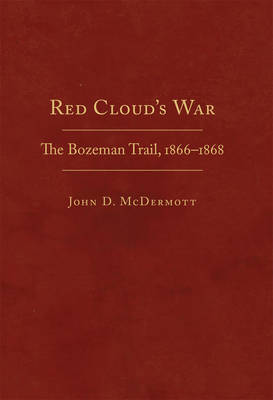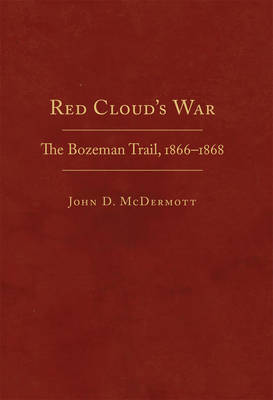
- Retrait gratuit dans votre magasin Club
- 7.000.000 titres dans notre catalogue
- Payer en toute sécurité
- Toujours un magasin près de chez vous
- Retrait gratuit dans votre magasin Club
- 7.000.0000 titres dans notre catalogue
- Payer en toute sécurité
- Toujours un magasin près de chez vous
Description
In vivid detail, McDermott recounts how the discovery of gold in Montana in 1863 led to the opening of the 250-mile route from Fort Laramie to the goldfields near Virginia City, and the fortification of this route with three military posts. The road crossed the Powder River Basin, the last, best hunting grounds of the Northern Plains tribes. Oglala chief Red Cloud and his allies mounted a campaign of armed resistance against the army and Montana-bound settlers. Among a host of small but bloody clashes were such major battles as the Fetterman Disaster, the Wagon Box Fight, and the Hayfield Fight, all of them famous in the annals of the Indian Wars.
McDermott's spellbinding narrative offers a cautionary tale of hubris and mis-calculation. The United States Army suffered one setback after another; what reputation for effectiveness it had gained during the Civil War dissipated in the skirmishing in faraway Big Horn country.
In a thoughtful conclusion, McDermott reflects on the tribes' victories and the consequences of the Treaty of 1868. By successfully defending their hunting grounds, the Northern Plains tribes delayed an ultimate reckoning that would come a decade later on the Little Bighorn, on the Red Forks of the Powder River, at Slim Buttes, at Wolf Mountain, and in a dozen other places where warrior and trooper met in the final clashes on the western plains.
Spécifications
Parties prenantes
- Auteur(s) :
- Editeur:
Contenu
- Nombre de pages :
- 704
- Langue:
- Anglais
- Collection :
- Tome:
- n° 30
Caractéristiques
- EAN:
- 9780870623769
- Date de parution :
- 30-12-10
- Format:
- Coffret
- Format numérique:
- Genaaid
- Dimensions :
- 163 mm x 241 mm
- Poids :
- 1315 g

Les avis
Nous publions uniquement les avis qui respectent les conditions requises. Consultez nos conditions pour les avis.






